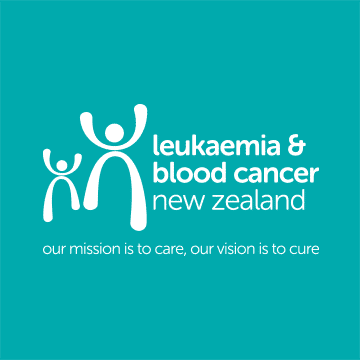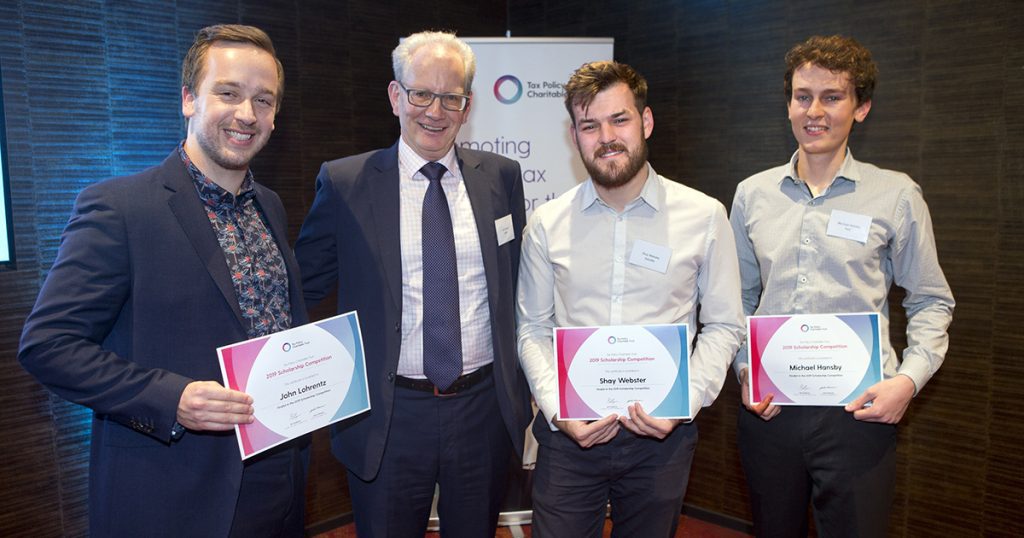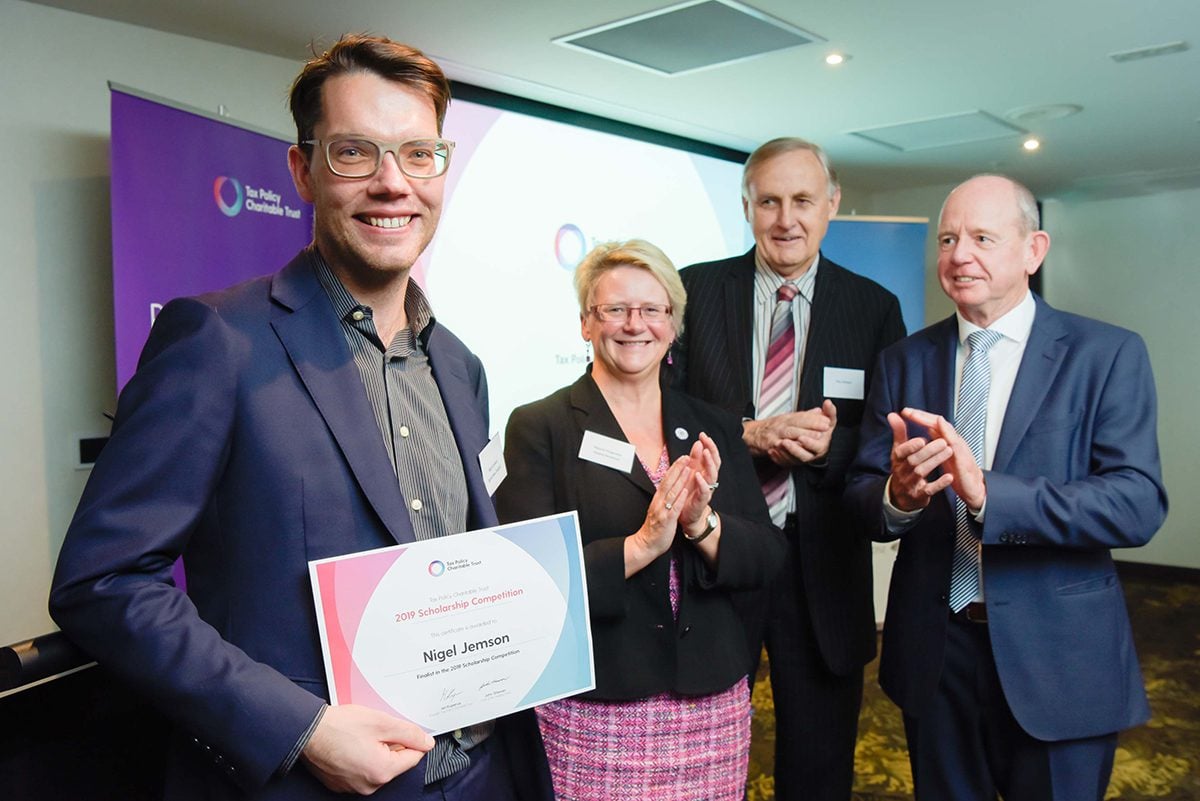Survey indicates property market cooling due to confusion
News release: Chartered Accountants Australia and New Zealand and Tax Management New Zealand
26 November 2021
A survey of chartered accountants and tax agents has revealed that incoming legislation intended to help cool New Zealand’s over-heated housing market is already having a major effect on investors – but largely because of confusion and lack of detail rather than clear policy.
The annual survey, jointly run by Chartered Accountants Australia and New Zealand (CA ANZ) and TMNZ, sought the views of 361 accountants in public practice, on recent tax policy developments.
Among the findings, the survey revealed that 70% of respondents have already seen clients change or voice their intention to change their residential property investment behaviours due to ongoing changes to the extended bright-line test, and proposed changes to deny interest deductions.
CA ANZ NZ Tax Leader John Cuthbertson said that further results from the survey show to key factors in play; the complexity of the proposed rules, and uncertainty as the details could change before the legislation is enacted in March 2022, despite the bright-line and denial of interest deductions coming into play from earlier this year.
“The survey suggests that the housing market has been given a policy placebo, in the form of legislation that is influencing behaviour before it is fully developed and enacted.”
“Residential property purchasers and investors typically react to the specific detail of legislation. However, in this case the market appears to be reacting to the complexity of the proposed legislations carveouts and inconsistencies, and the fact that it won’t know exactly what is in place until March 2022, despite it being backdated to capture activity in 2021.”
“To be fair, the Government’s aim was to cool down the overheated housing market, which is causing a range of economic and social issues, but we’re not sure this is the best way to do it.”
The survey shows that over 21 per cent of the respondents, or 1 in 5, feel ‘not at all confident’ about advising clients on the proposed new build interest limitation rules, and over 65 per cent of participants felt the phase out and denial of interest deductions would be somewhat or extremely difficult to comply with.
Similarly, almost 50% of respondents said they were either somewhat confident, or not at all confident on advising on the new build bright-line test.
“Because this policy hasn’t been developed in line with the generic tax policy process (GTPP), there’s a much higher chance of unintended consequences and collateral damage. The survey shows a considerable lack of confidence in how the legislation will work, and that will likely result in non-compliance and issues around who is captured and who isn’t.”
“It’s important to note that the level of complexity encountered will depend on the number of properties owned, banking arrangements in place and the mix of interest limitation rules and concessions in play,” added Mr Cuthbertson.
TMNZ Chief Executive Chris Cunniffe said the survey provides a good indication of how the proposed rules would be rolled out.
“In their current complex form, there’s likely to be a lot of variability in compliance with these laws. Especially as not everyone has a tax agent or accountant helping them.”
“While the extension of the bright line test to 10 years might land well for most mum and dad property owners, the denial of interest deductions and how that relates to new builds is likely to be misunderstood.”
“There’s opportunity for Government to provide greater clarity on the law changes and simplify certain aspects to help owners and accountants alike.”
New Survey Shows Inland Revenue Helpful, But Hindered
Press Release: Chartered Accountants Australia and New Zealand and Tax Management New Zealand
24 November 2021
Helpful, but hindered is the overarching finding in a new survey digging into public practice accountants’ experiences with Inland Revenue (IR).
Conducted by Chartered Accountants Australia and New Zealand and TMNZ, the survey of 361 members in public practice asked a range of questions about the timeliness of IR’s service, the quality of interaction, and the business support on offer.
“Over 80 per cent of those surveyed rated their agent account manager interactions positively over the last 12 months, which Inland Revenue should be pleased with,” said CA ANZ NZ Tax Leader John Cuthbertson.
“The flipside is that it is taking much longer for Inland Revenue to resolve queries. The number of public practitioners who say it’s taking more than 6 days to resolve their queries has risen from 5 per cent of respondents, to 47 per cent.”
Despite this, accountants and tax agents are positive about not only their interactions with account managers, but also the support measures that Inland Revenue has administered.
“Accountants and agents across New Zealand are telling us that the tax support provided by Inland Revenue has been as effective this year, as it was last year,” said Tax Management New Zealand Chief Executive, Chris Cunniffe.
“It’s been another turbulent year for businesses, and the tax relief and support measures have made a positive difference. It’s just that our survey shows it can take a while to get through to Inland Revenue, and to have queries resolved and assistance locked in.”
The appreciation of Inland Revenue’s support was illustrated by 85 per cent of participants reporting that they had clients who utilised the remission of interest and penalties for late payment of provisional tax due to COVID.
Additionally, over 71 per cent of participants have found it easy or not difficult, to enter into or assist clients with an instalment arrangement in the past 12 months. This covers all types of tax, including GST, PAYE and FBT, not just provisional tax.
The increased level of scrutiny and information required to access COVID support was also felt by survey respondents.
“Approximately half the survey respondents said that accessing COVID support was harder than in 2020. That’s not surprising, given the public’s desire for more scrutiny about who received support, and the declarations becoming more stringent during this year’s lockdowns,” concluded Mr Cuthbertson.
Partnership with ATAINZ
March 29, 2021 — TMNZ today announces a partnership with The Accountants and Tax Agents Institute of New Zealand (ATAINZ). The partnership will advance TMNZ's ambition to accelerate the adoption of tax pooling solutions amongst taxpayers who would benefit from genuine provisional tax flexibility. In addition, TMNZ is announcing plans to commence offers and opportunities via the ATAINZ membership.
ATAINZ members will be able to look forward to the collaboration between TMNZ and ATAINZ. Starting from Q2 2021, ATAINZ members will have available tax pooling training, collateral options, and an ATAINZ point of contact at TMNZ.
Richard Abel, Chairperson of ATAINZ said: “Having been a user and supporter of tax pooling through TMNZ for a number of years, we’re excited to formalise an agreement with TMNZ for all our members. Signing the partnership with TMNZ affirms our commitment to being recognised as the voice of small-medium businesses (SME) in New Zealand. Tax pooling presents a cashflow solution that more should be aware of.”
Neil Bhattacharya, Head of Client Services at TMNZ said: “ATAINZ is a progressive organisation that is growing quickly and TMNZ is looking forward to partnering with them for the next 3 years and beyond. We feel strongly that tax pooling is a key cashflow tool for SMEs and a perfect match for ATAINZ clients looking for cashflow options.”
About ATAINZ
The Accountants and Tax Agents Institute of New Zealand (ATAINZ) exists to promote the welfare and professional development of its members and to represent members' interests in New Zealand. It is unique in the New Zealand tax and accounting market because of its grassroots contact with members.
TMNZ is Now a Partner of Live Ocean

On Thursday, 15 October 2020 TMNZ announced a new partnership with Live Ocean. The announcement at Akarana Yacht Club, where TMNZ used to have their HQ and Live Ocean founders Blair Tuke and Peter Burling first sailed a 49er, aims to turn around some pretty worrying stats about the state of our ocean by accelerating positive ocean action in New Zealand. 94% of New Zealand’s area is ocean, and like business, ocean health is a cause that deserves and demands our leadership.
The story of giving for TMNZ and its founder isn’t new. After pitching the idea of tax pooling to various governments for almost 20 years, Ian and Wendy decided to ‘take the helm’ and mortgage their home to get the industry and TMNZ started in 2003. Since then they have continued to support people and causes that make a difference to the lives of others in NZ. Partnering with Live Ocean is one entry amongst a growing list where all profits are committed to charity each year.
Ian has always had an interest in sailing and saw first-hand the positive impact that Team New Zealand had in Valencia, San Francisco and Bermuda. He was impressed by Peter and Blair, who at the top of their sport, want to find time to make the world a better place. Partnering with them seemed almost fated.
When asked what the support of TMNZ means for Live Ocean, Peter said “So little of our Ocean is protected, 90% of our seabirds are at risk. This helps us fund projects that reverse these trends”.
As a foundation partner of Live Ocean, we see the potential to unlock capability and funding for ocean conservation in New Zealand. When our people are at work, they know they’re helping build a better New Zealand.
To learn more about Live Ocean and the work they are doing visit liveocean.com
TMNZ stepping up for Leukaemia & Blood Cancer New Zealand

TMNZ staff are raising money for Leukaemia & Blood Cancer New Zealand by racing up the tallest building in the Southern Hemisphere next month.
Grace Evetts, Mara Fisher, Neil Bhattacharya, Jatin Sharma and Lee Stace – collectively known as the ‘TMNZ Fast Five’ – are participating in this year’s Step Up Sky Tower Stair Challenge on 9 August.
They will join other teams from across New Zealand in racing up the 1103-step Auckland Sky Tower . The structure stands an impressive 328m and is 51 floors.
The money TMNZ raises will help Leukaemia & Blood Cancer New Zealand pay for patient support, research, information and advocacy.

About Leukaemia & Blood Cancer New Zealand
Leukaemia & Blood Cancer New Zealand is the national charity that supports patients and their families.
Blood cancers combined are the fifth most common form of cancer in New Zealand. An estimated 21,000 people live with blood cancer or a related condition.
In fact, six children and adults in New Zealand are diagnosed with a blood cancer like leukaemia, lymphoma and myeloma every day.
Despite doing such fantastic work, Leukaemia & Blood Cancer New Zealand receives no government funding.
The Step Up Sky Tower Stair Challenge is a key fundraiser for this organisation. That's why TMNZ staff are exercising their social responsibility by competing in this event.
How you can help
If you wish to sponsor one of the individual team members or donate directly to the team, you can do so here.
The TMNZ Fast Five are training hard to ensure they are fit and strong enough to tackle the Step Up Sky Tower Stair Challenge.
However, they cannot raise much-needed funds for Leukaemia & Blood Cancer New Zealand without the generosity of others.
They will appreciate any donations, so please give whatever you can.
And remember, anyone who makes a donation of $5 or more is eligible to receive a 33.33 percent tax credit or rebate from IRD.
Tax Policy Scholarship Competition finalists

A negative income tax coupled with a flat tax rate for individuals and the creation of a trusted taxpayer regime.
These are among the ideas judges will hear as part of the Tax Policy Scholarship Competition.
A tax on biogenic methane emissions and freshwater as well as reforming the R&D tax credit regime are the others options on the table.
Spark’s Nigel Jemson, and the Deloitte duo of John Lohrentz and Shay Webster are this year’s finalists.
They are vying to win $10,000 prize money.
The three finalists’ proposals are an interesting mix of environmental, social assistance and behavioural messages, says Tax Policy Scholarship Competition judge and Tax Policy Charitable Trust chair John Shewan.

The ideas of the quartet
Jemson is pushing for the creation of a trusted taxpayer regime.
This will see businesses receive a 10 percent discounted tax rate by opting to regularly report financial information to IRD.
Anyone part of the scheme for three years or more will also have their annual tax return requirement removed.
A small business would be eligible for the scheme if they are using the accounting income method to pay provisional tax and operating a “predominantly cash-free” business.
As for Webster, he favours using tax to create a broad, universal welfare system to tackle inequality, reduce the cost of welfare and stimulate the economy.
He proposes doing this by implementing a negative income tax combined with a flat rate of 33 percent for individuals.
Under this, those earning less than $31,500 will receive a tax credit or a weekly or fortnightly cash payment from the Government.
Meanwhile, Lohrentz supports a progressive tax on biogenic methane emissions in the agriculture sector.
Revenue from the tax would go back into agricultural. That would be in the form of:
- A fund to grant money to those changing land use, planting trees, retraining or implementing more efficient practices and technology.
- An R&D tax credit exclusively for climate change-orientated R&D in the agriculture sector.
Not only that, but he also promotes a 40 percent R&D tax credit. This would be for taxpayers undertaking a core R&D activity that fosters ‘natural capital’ in New Zealand’s agriculture sector.
The next stage of the Tax Policy Scholarship Competition
The finalist will present to the judges in Wellington in November.
Shewan says their proposals have the potential to make a difference to New Zealand society.
Still, the judges will be considering other factors when making their final assessment. That’s because these ideas may also place additional pressure on the tax system or have unintentional consequences.
“The judging panel will be looking closely at issues such as complexity, economic impact, the potential for distortions and technical feasibility in judging the final submissions,” says Shewan.
As well as Shewan, the other judges on the panel are former Reserve Bank of New Zealand governor Alan Bollard, tax barrister David McLay, former Bell Gully tax partner Joanne Hodge and former IRD deputy commissioner Robin Oliver.
While the winner will collect $10,000, the runner-up will receive $4000 and the other finalist $1000.
Tax Policy Scholarship Competition background
Every two years, the Tax Policy Charitable Trust invites young tax professionals with an interest in tax policy to make a submission.
Submissions for the Tax Policy Scholarship Competition must outline a significant reform to the New Zealand tax system.
It is open to those under the age of 35 working (or eligible to work) in New Zealand. Those in the public and private sector or academia can enter.
There were 14 entries this year.
“Several submissions focused on the use of tax to achieve social and environmental outcomes, and to incentivise taxpayers to behave in particular ways,” says Shewan.
This is the third Tax Policy Scholarship Competition.
Previous winners include Matt Woolley and Talia Smart (both 2017) and Caleb McConnell (2015).

About the Tax Policy Charitable Trust
Tax Management NZ founder Ian Kuperus is responsible for creating the Tax Policy Charitable Trust.
His aim is to support the continuation of leading tax policy research and thinking and inspire future tax policy leaders.
In addition to the Tax Policy Scholarship Competition, the trust also sponsors the visit of a leading tax expert to New Zealand.
This is to ensure New Zealand benefits from the best tax thinking from overseas.
Last year, it held an event with the Tax Working Group members after the release of their draft report.
TMNZ's provisional tax calculator
At TMNZ, we're 100% invested in simplifying provisional tax for New Zealand businesses. Our provisional tax calculator helps you by removing the time and strain of calculating your provisional tax payments.
- The tax calculator tool helps calculate provisional and terminal tax liabilities.
- We help you choose the best time to file. Toggle potential tax filing dates to see if there's an impact on your tax bill.
- One step payment arrangements. Once you know the liability, you can set up a payment plan with Flexitax.
The information you need to use the provisional tax calculator
All that you require is:
- Your IRD number
- Your residual income tax (RIT) for your last two tax years, the dates the income tax returns for those years were filed, and the expected/final RIT for the current year.
How to calculate your payments
To use our provisional tax calculator, log in to your TMNZ dashboard.
If you've not already done so, you can register for free.





